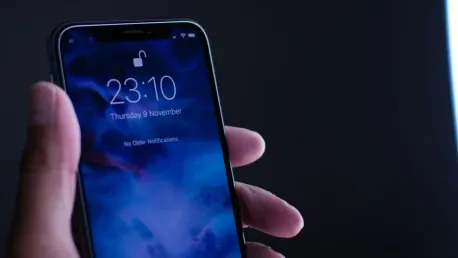Proposed legislative changes in Iowa could soon prohibit the use of cell phones within public schools, a matter awaiting final endorsement by Governor Kim Reynolds. This potential ban, encapsulated in House File 782, is being closely observed by local school authorities who are preparing to adapt their policies if the bill becomes law. Fort Dodge Community School District Superintendent Josh Porter has mentioned that his district’s existing policies are rigorous but anticipates certain adjustments might be required. Meanwhile, Southeast Valley Superintendent Brian Johnson has highlighted a significant expected impact on high school students, with middle and elementary students already facing restrictions on device usage.
Legislative Developments and Impacts
High School Implications and Policy Adjustments
House File 782 passed through the Iowa House of Representatives with a resounding majority (92-4), reflecting tremendous legislative support for curbing cell phone use in educational environments. This bill commands public and charter schools to restrict the presence of cell phones and other personal electronic devices during instructional periods, starting from the academic year onward. Importantly, there are stipulations for exceptions, particularly for students who require devices as part of their Individualized Education Programs (IEPs) or 504 plans, aimed at addressing mental or physical health needs as approved by parents’ petitions.
Principals and school authorities are bracing for the operational shifts that formally restricting cell phone use entails. The primary objective, as articulated by Representative Ann Meyer, who champions the bill, is to foster a learning environment undisturbed by technological distractions. The consensus among lawmakers and educators is that minimizing the influence of social media and constant connectivity will materially enhance student focus and academic performance. Remarkably, while Fort Dodge Community School District’s Superintendent Josh Porter believes their current measures are strong, he acknowledges that further refinement will align with the new statutory requirements.
Varied School Responses and Preparedness
Southeast Valley Superintendent Brian Johnson has expressed his frustrations regarding disparities in regulations, particularly the bill’s exclusive application to public schools. Johnson has questioned why successful cell phone management practices in private schools are not shared across the board in order to optimize overall educational policies. His observations underscore a broader sentiment within the public education sector regarding equitable administration and access to resources.
School districts are anticipated to review and refine their existing guidelines. This involves balancing the maintenance of effective learning environments with addressing individual needs, as outlined by the bill’s exceptions. Johnson’s district, for example, already has restrictions in place for middle and elementary school students, demonstrating proactive measures and an understanding of the disruptive nature of unchecked device usage. However, as the bill’s guidelines come into force, high school frameworks will undergo necessary restructuring to meet compliance.
Special Provisions and Policy Framework
Health-Related Exceptions and Implementation Plans
The bill mandates notable provisions for students requiring personal electronic devices due to health-related issues. Exceptions under House File 782 are available, ensuring that educational inclusivity and support for students with specific needs are upheld. This ensures the device remains a vital tool rather than a distraction, ultimately reinforcing the holistic approach schools must adopt in the contemporary educational landscape.
Additionally, the Senate reviewed and amended House File 782, adding further intricacies to its implementation. One significant amendment requires Iowa’s Education Department to devise a model device-use policy by May 1. This model will serve as a benchmark for public and charter schools, providing a cohesive framework that aligns with statewide educational goals. Conversely, the Senate also removed a provision considering mandatory cell phone training for students in grades 6 through 8. This amendment acknowledged the need to balance device literacy with practical restrictions, leaving the responsibility with school districts.
Broader Educational Goals and Future Directions
Governor Kim Reynolds has already endorsed the bill’s ethos, underlining the importance of eradicating digital distractions as a means to improve student engagement, learning, and productivity. By signing House File 782 into law, Reynolds will stamp a decisive legislative measure aimed at optimizing Iowa’s educational practices. School authorities will spearhead the policy’s activation, scrutinizing and adapting device use protocols to conform with state directives. This bill’s success largely hinges on schools’ proactive conduct in establishing policies that balance educational integrity with modern technological demands.
The broader conversation also includes the disparity in regulations between public and private institutions, highlighted by education leaders like Brian Johnson. This debate could spur future legislative amendments or collaborative efforts to unify policy standards across all schools, aiming for a universally enriched learning environment.
The Road Ahead for Iowa’s Schools
Proposed changes to Iowa’s legislation could result in a ban on cell phone use in public schools, pending final approval by Governor Kim Reynolds. This ban, detailed in House File 782, is being scrutinized by local school officials who are getting ready to revise their rules if the bill is passed. Josh Porter, superintendent of Fort Dodge Community School District, stated that while his district’s current policies are stringent, they will likely undergo adjustments to comply with the new law. Brian Johnson, superintendent of Southeast Valley, emphasized the significant impact this ban would have on high school students, noting that middle and elementary school students are already subject to strict regulations regarding device usage. These changes aim to improve the educational environment and reduce distractions, fostering a better atmosphere for learning. School districts in Iowa are prepared to implement the necessary modifications to ensure they remain in compliance with the new legal framework.









